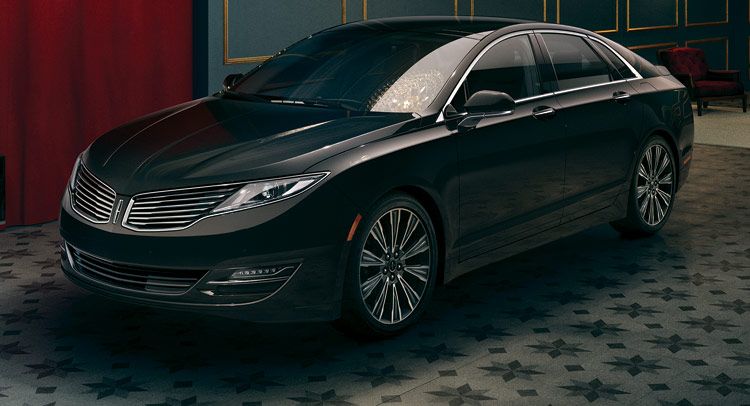Still sounding like a whiskey, the Lincoln Black Label series tries to pull the brand up in the prestige ranks among luxury brands.
Lincoln announced its new upscale trim Monday, which includes more than just better leather and new paint colors. Four design themes will be offered on the MKZ and MKC – Indulgence, Center Stage, Modern Heritage and Oasis. Each has its own colors, wood trim and leather or Alcantara treatments. There are also exterior paint colors and wheels special to Black Label cars.
In all, though, there’s lots of talk about moods and concepts that’s evocative of those early “rocks and trees” Infiniti ads. Take that how you will.
Going further than just a trim package, Black Label will allow customers to get a personal shopper from special Lincoln dealerships. These assistants will guide prospective customers to their “ideal Lincoln,” and meet these buyers at a home or office rather than having them come to the dealership.
Once you buy a Black Label Lincoln, you also get four years/50,000 miles of free scheduled maintenance, a car wash at any time, free service loaner, and a “Culinary Collection membership,” where Black Label customers get to “enjoy access to a curated list of restaurants from coast to coast, with noted chefs who will provide an at-your-service dining experience.”
And all of this for $5,995 over the cost of a normal Lincoln.
For now, the new series is only on the two newest Lincolns, but expect it to be rolled out on other models over the years. Ford’s luxury brand has had a tough go of things for the last several years, but renewed interest in new vehicles and buzzed-about TV spots is at least throwing attention Lincoln’s way. Whether Black Label is enough to raise its prestige will be interesting to see.
When Black Label launches in December, it will be available at just 32 dealers in six states. Nationwide expansion comes by the end of 2015. And Lincoln says it will also launch the series in China, where Lincolns have just gone on sale. There, however, it will be called “Presidential.”
Because it’s OK for American brands to wrap themselves in heritage in China, of course.
By Zac Estrada












